14. Fuse (2003)
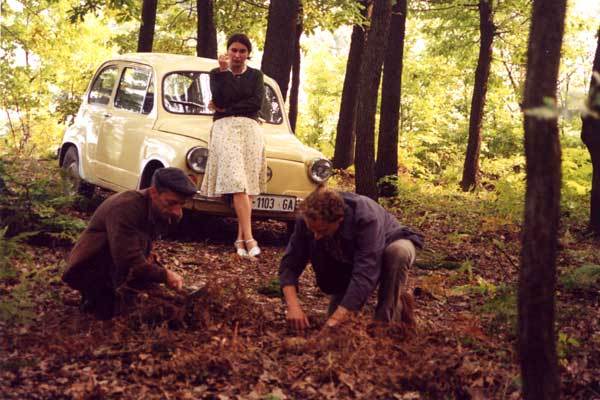
Following hot on the heels of No Man’s Land, Fuse treads much of the same thematic ground, except this time it deals with the arrival in a small Bosnian town of a certain Mr. Clinton. However, before his arrival the Westerners must come and make sure that these stupid little Bosnians don’t screw up, and they proceed to smother the little town under an ocean of bureaucracy and pointlessness.
Yet in the meantime, the hills around are still surrounded by landmines, and those returning home after years spent abroad are spat upon if they’re not from the correct ethnic group.
Pjer Zalica shows his hand as one of post-war ex-Yugoslavia’s most assured directorial hands here, producing a film that treads the line between laughing and crying so fine that Philippe Petit would be impressed. The performances in particular are beautiful in their ability to transcend that thin line into something greater than the sum of its parts, with veteran actor Bogdan Diklić in particular giving the best performance of his career as a traumatised alcoholic father struggling to deal with the death of his son.
15. Karaula (2006)
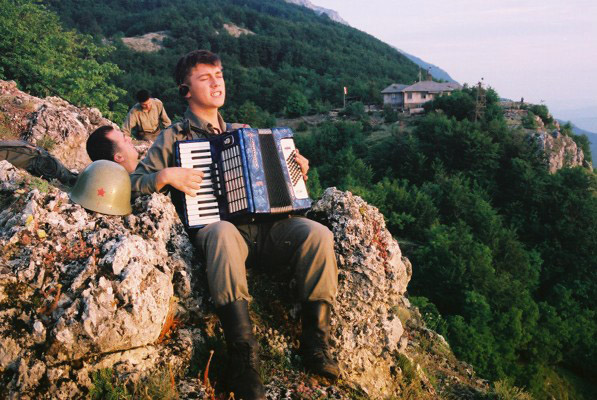
Croatian director Rajko Grlić went to Lake Ohrid with a pan-Yugoslav cast for this wonderful tragicomedy about a Yugoslav army barracks stationed on the lake that now divides Macedonia from Albania.
Set in 1987, Karaula (which translates to border-post) tells the story of a barracks colonel (Emir Hadžihafisbegović) who, embarrassed by his tryst with a prostitute and afraid to tell his wife that he’s suffering from the *ahem* after-effects, decides to fabricate an Albanian threat from across the border to shut down the barracks and cover up his infidelity. The only person allowed in and out of the barracks for the time being is a young conscripted doctor, purely for the purposes of buying medicine for the colonel’s STI.
Overtime, relations in the barracks deteriorate to exploding point, as everyone begins to fabricate their own lies for their own gain. The multi-ethnic cast of characters fret and worry about the enemy outside and over the mountains, yet we never once see them, when instead the enemy is on the inside.
Ethnic stereotypes and jokes dilapidate the morale and relationships of the barracks, until no one can handle it any longer and tragedy strikes. Suffice to say, Karaula may be the best of the post-war films that investigate the war, although it is in very strong company.
16. Grbavica (2006)
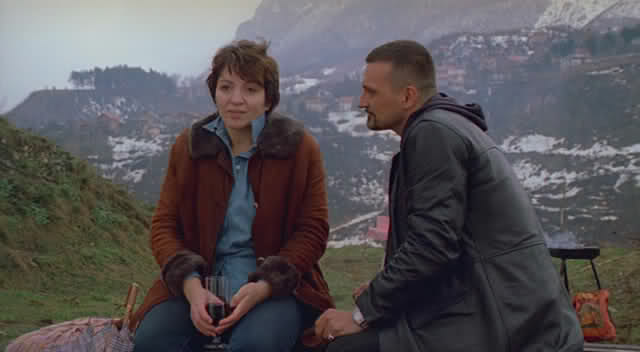
One of the greatest tragedies of the Balkan wars in the 1990s was the use of rape as a weapon. All three sides used it as a tool to psychologically break their enemies (although the Serbian side are probably most guilty in terms of pure numbers), and the result has been an entire generation of traumatised women who had no desire to involve themselves in the mindless slaughter at all.
Grbavica, by Jasmila Zbanić, is one of the most powerful post-war films, especially given the fact that it is a film that has almost no violence in it whatsoever; indeed all the violence here is purely psychological.
Mirjana Karanović, Yugoslavia’s greatest actress, gives possibly the best performance of her career in Grbavica as Esma, a working class mother of a teenage girl who is just beginning to awaken herself sexually, emotionally and mentally.
For her daughter, that also means coming face-to-face with some horrible aspects of the past, and the resulting emotional fallout drives the film. Esma is an incredible, psychologically complex character like few other creations in the cinema, and Karanović rises to the task with consummate grace and brilliance.
17. The Tour (2008)
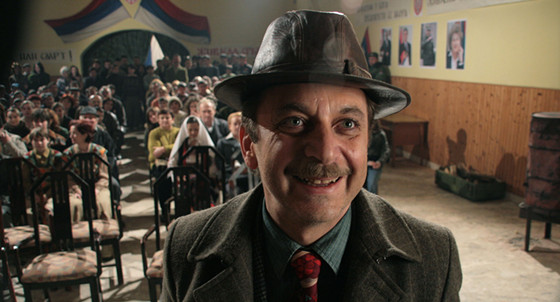
The Tour is yet another excellent film from Goran Marković. Depicting the trials and tribulations of an inestimably hapless and penniless theatre company whose manager convinces them to do a tour of the frontlines to aid the troops, The Tour is brimming with fine performances from a venerable who’s-who’s of Yugoslavian actors. Dragan Nikolić, Josif Tatić, Emir Hadžihafisbegović, and Jelena Djokić all make fine turns.
Balancing, once again, the fine line between tragedy and comedy, as so many other post-war films do so well, The Tour again proves Marković to be one of Yugoslav cinema’s finest humanists, a genuine force for good amidst the hell that was the war in Bosnia. The Tour quite rightly takes potshots at nationalists of all types, but reserves its most acerbic ire for those of the Serbian variety.
An Arkan-type character appears, played with confidence by Sergej Trifunović (Arkan was a Serbian gangster and war criminal who committed genocide in Bosnia and Croatia) and is roundly pilloried as a Belgrade-boy from the city playing at being a nationalist in a place that has nothing to do with him.
A poet appears also, a composite character of Serbian intellectuals like Dobrica Čosić and Vuk Draškovic who portrayed themselves and Serbs as some kind of mystical Orthodox heavenly people, but in reality are complete charlatans and frauds, and such character spend large parts of the film being the butt of the jokes.
18. A Serbian Film (2010)
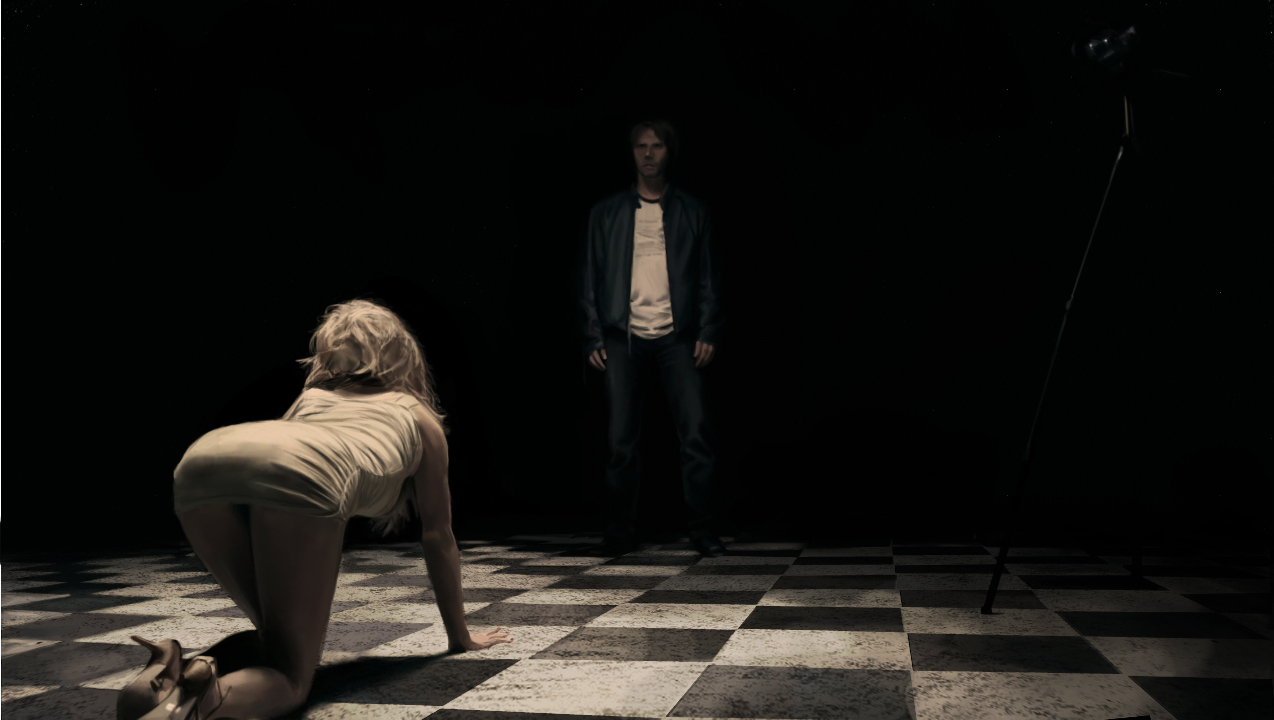
For many, A Serbian Film is too much to stomach. It’s understandable. However, for those with an understanding of the politics of modern Serbia, the politics of those who actually have the power to make decisions and enact change, A Serbian Film is almost a depressingly restrained allegory. When you have a country that is led at the top by war criminals, mafiosos, and general bad guys, it’s difficult to look at a film like this and think ‘actually this film goes too far’.
Yes, A Serbian Film isn’t for everyone, and it should be stressed that modern Serbia, just as with Croatia and Bosnia, is a wonderful country full of great people, who are far tougher and more resilient than the traditional media portrayal might show. The film’s righteous anger is reserved exclusively for those in power, and the vitriol is – in many cases – richly deserved.
19. Parade (2011)
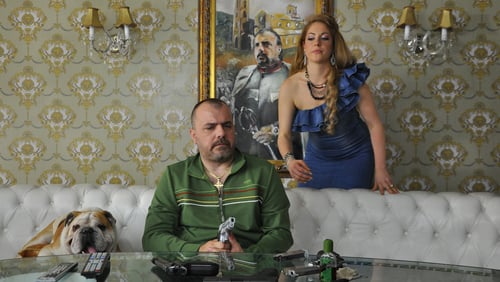
Gay rights has a troubled history in Serbia and the Former Yugoslavia, but in recent years it has been improving greatly and with speed. After many years of not being able to host a gay pride parade due to extremist threats, Belgrade has finally been able to open up to such liberalisation. Parade, directed by Srdjan Dragojević, might have something to do with that: it was the highest-grossing ex-Yugo film across all the republics in the year of its release, and it is a hilariously politically-incorrect sex comedy about understanding and love.
We follow a group of LBGT activists who, in trying to get a gay pride parade organised, turn to Limun (Nikola Kojo), a homophobic Serbian gangster and hardline nationalist. They convince him to take on the job, but other supporters are hard to come by until Limun travels to Croatia, Bosnia, and Kosovo tracking down old friends, who also happen to be old enemies.
Eventually he brings together a Croatian nationalist, a Bosnian nationalist, and a Kosovan Albanian nationalist. Somehow they all get along, and although both the LBGT characters and the nationalists are little more than caricatures of their varying groups, Parade is rip-roaringly funny throughout.
20. Cinema Komunisto (2011)
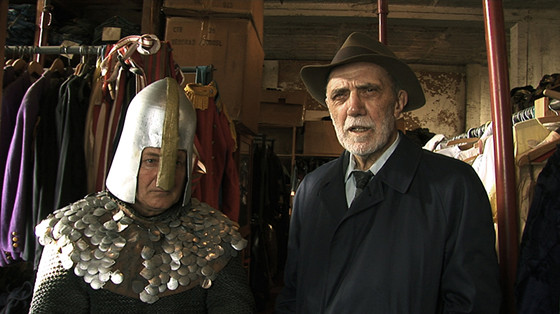
It would have been easy to produce an entire list of superb documentaries on Yugoslavia, but perhaps that is for the future. This however, is the only exception, primarily because it is a documentary about Yugoslavian cinema and in particular about the Partisan war films of the ’60 and ’70s. Truth be told, the vast majority of these films are quite boring and undeserving of being on this list – simplistic, overblown war films notable more for their sheer scale rather than any genuine heart.
However, Cinema Komunisto is a fascinating film about how and why they were made. Tito, it turns out, was a massive film fan, watching a film almost every day at his home, and he personally involved himself in the films being made about Partisan exploits in WWII, so that the ‘correct’ version of the story got told, like a good dictator.
What emerges is a picture of a genuinely creative and efficient film industry that perhaps didn’t always get the chance to shine as it should have: the best Yugoslav films of this period, as we have seen, were always the guerrilla underground ones. But then again, isn’t that almost always the case?
Author Bio: Fedor Tot is a Serbian-born, Welsh-raised history undergraduate at the University of East Anglia. Outside of an interest in cultural histories and particularly those of the old Yugoslavian homeland, he is also an occasional standup comic, most trading in jokes about spatulas and socialism. You can visit his personal blog here.